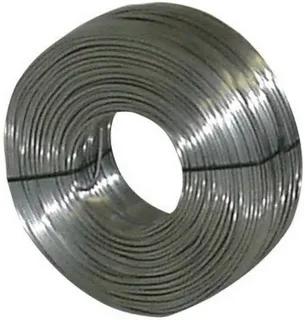Tie wire is an essential material in construction and various industrial applications, primarily used to secure reinforcing bars (rebar), bundle materials, and hold components in place. While it may seem simple in function, the strength of tie wire plays a vital role in ensuring the structural integrity of whatever it supports. This article explores the tensile properties of tie wire to answer the question: How strong is tie wire?
What Is Tie Wire?
Tie wire is typically made from annealed steel, stainless steel, or galvanized wire. It comes in various gauges, with 16-gauge and 18-gauge being the most common in construction. The wire is chosen for its flexibility, ease of use, and ability to hold materials tightly in place without snapping under pressure.
Tensile Strength: The Key to Wire Performance
To understand how strong tie wire is, it’s important to look at its tensile strength—the maximum stress that the wire can withstand while being stretched before breaking. This property determines how much force the wire can handle during tension or pulling.
- Annealed steel tie wire generally has a tensile strength of around 40,000 to 60,000 psi (pounds per square inch).
- Galvanized or stainless steel tie wire tends to have higher tensile strengths, depending on the grade and coating.
While this level of strength may not match that of heavy-duty structural steel, it is more than sufficient for the wire’s intended purposes, such as holding rebar or fencing together during concrete pouring or framework assembly.
Factors Affecting Tie Wire Strength
Several variables can affect the strength of tie wire:
- Wire Gauge – Thicker wires (lower gauge numbers) usually have higher tensile strength and are more resistant to snapping under tension.
- Material Composition – The type of metal and its treatment (e.g., annealing, galvanizing) greatly influence durability and tensile properties.
- Environmental Conditions – Exposure to moisture, heat, or chemicals can degrade certain types of tie wire over time, affecting strength and performance.
Practical Applications and Load Considerations
In typical construction settings, tie wire isn’t expected to bear heavy loads on its own. Instead, it acts as a fastening or support mechanism. That said, knowing how strong tie wire is becomes essential in environments where shifting or external pressure may stress the connections. For example, in high-rise construction or bridgework, stronger wire ensures rebar remains tightly secured during concrete pouring and curing.
Conclusion
So, how strong is tie wire? While not designed to carry heavy structural loads, tie wire boasts impressive tensile properties for its size and function. With tensile strengths ranging between 40,000 and 60,000 psi depending on the type and gauge, tie wire provides reliable and flexible support in a range of construction and industrial applications. Understanding its strength helps ensure it’s used appropriately and effectively, especially in safety-critical environments.
By choosing the right type of wire for the job, professionals can be confident that their tie wire will hold fast—exactly when it matters most.


